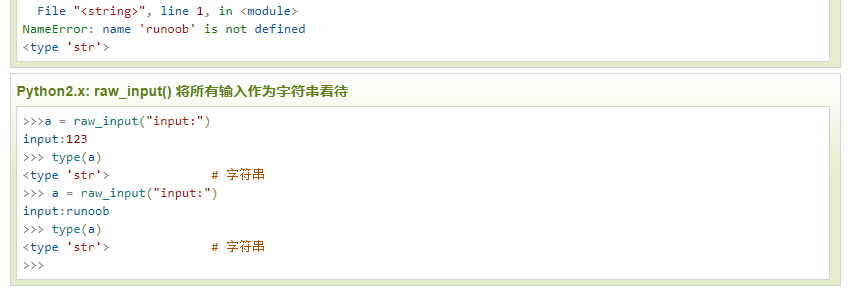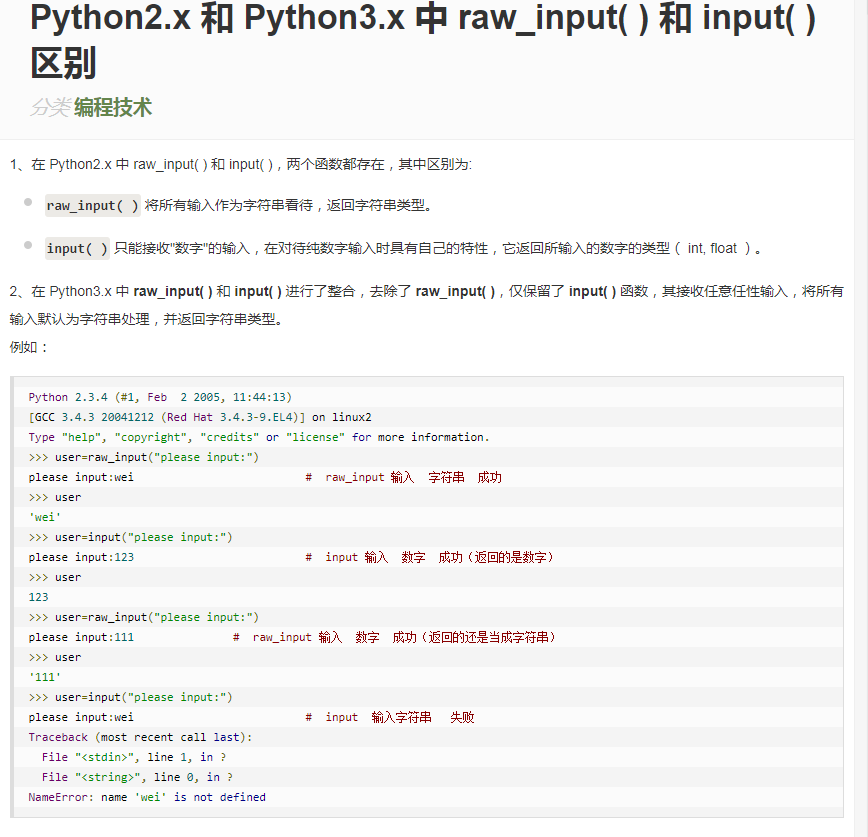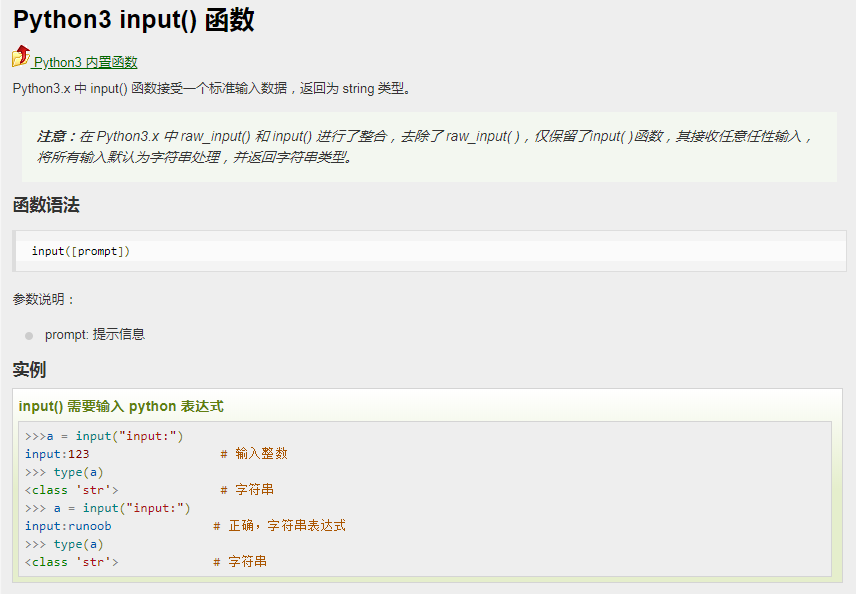【Python】【基础知识】【内置函数】【input的使用方法】
原英文帮助文档:
input([prompt])
If the prompt argument is present, it is written to standard output without a trailing newline. The function then reads a line from input, converts it to a string (stripping a trailing newline), and returns that. When EOF is read, EOFError is raised. Example:
>>> s = input('--> ') --> Monty Python's Flying Circus >>> s "Monty Python's Flying Circus"
If the readline module was loaded, then input() will use it to provide elaborate line editing and history features.
————————(我是分割线)————————
中文解释:
input([prompt])
如果prompt参数存在,它将被写入标准输出,而不带尾随换行符。然后,该函数从输入中读取一行,将其转换为字符串(去掉尾随的换行符),并返回该行。
当读取到EOF时,将引发EOFError。例子:
>>> s = input('--> ') --> Monty Python's Flying Circus >>> s "Monty Python's Flying Circus"
关于EOFError:
exception EOFError
Raised when the input() function hits an end-of-file condition (EOF) without reading any data. (N.B.: the io.IOBase.read() and io.IOBase.readline() methods return an empty string when they hit EOF.)
当input()函数在不读取任何数据的情况下达到文件结束条件(EOF)时引发。(注意:io.iobase.read()和io.iobase.readline()方法在到达EOF时返回空字符串。)
如果读取到readline模块, input() 将使用它来提供精细的行编辑和历史特征。
示例:
>>> input() s 's' >>> a = input("please input str") please input str99 >>> a '99' >>> a = input("please input str\n") please input str 100 >>> a '100' >>>
———————(我是分割线)————————


注意:在Python 2.x 和Python 3.x版本中input函数的区别:


所以在Python 2.x 中常见到的是raw_input() ;


原文地址:https://blog.csdn.net/suibianshen2012/article/details/51378948


————————(我是分割线)————————
参考:
1. Python 3.7.2 documentation
2. RUNOOB.COM:
https://www.runoob.com/python/python-func-input.html
https://www.runoob.com/python3/python3-func-input.html
https://www.runoob.com/w3cnote/python2-python3-raw_input-and-input.html
https://www.runoob.com/python3/python3-func-input.html
3. https://blog.csdn.net/suibianshen2012/article/details/51378948
备注:
初次编辑时间:2019年9月21日22:41:17
第一次修改时间:2019年9月22日17:03 / 添加Python3 的Input函数说明
环境:Windows 7 / Python 3.7.2


